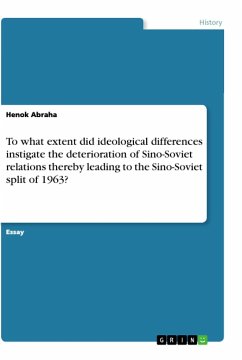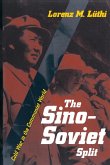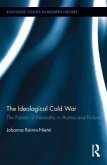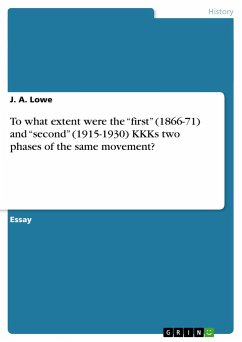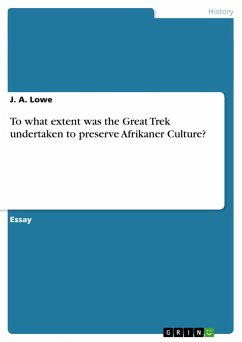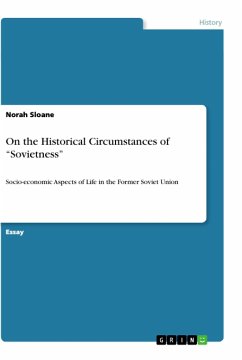Essay from the year 2016 in the subject History - Asia, grade: EE, Uppsala University, language: English, abstract: The aim of this essay is to examine to what extent ideological differences instigated the deterioration of Sino-Soviet relations leading to a split in 1963. Different aspects of Sino-soviet relations will be looked at thematically in this essay. The first part looks at how issues of equality affected the relationship. It begins by detailing the terms of the Sino-Soviet treaty of friendship, alliance and mutual assistance, Sino-Soviet military alliance in the Korean War, and its repercussions. The second part of the essay assesses ideological differences between China and the Soviet Union centered on de-Stalinization, economic development and peaceful coexistence. After detailing the ideological differences between the two countries the consequences for Sino-Soviet relations are established. The third part takes a look at the personal relationships between Stalin, Mao and Khrushchev and how it contributed to the Sino-Soviet Split. It begins by detailing Stalin's support for the CCP during the Chinese civil war, the treatment Mao received during his visit to Moscow in December 1949 and then the personal relationship between Khrushchev and Mao after Stalin's death. The conclusion reached in this essay is that ideological differences played a significant role and carried with it serious consequences for the relation between China and the Soviet Union. Chinese sentiments of equality acted as a catalyst in the deteriorations of relations. The poor personal relationship between Stalin, Mao and Khrushchev was partially responsible by not facilitating a scenario in which differences could be resolved and repaired through direct personal contact between the leaders of the two countries.
Bitte wählen Sie Ihr Anliegen aus.
Rechnungen
Retourenschein anfordern
Bestellstatus
Storno

